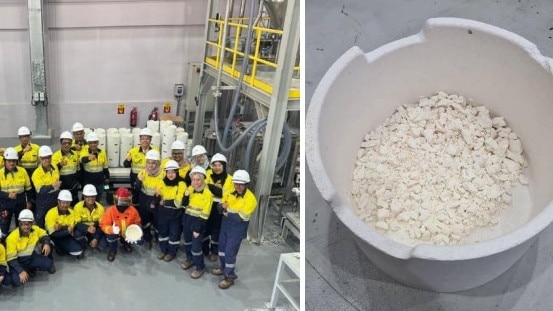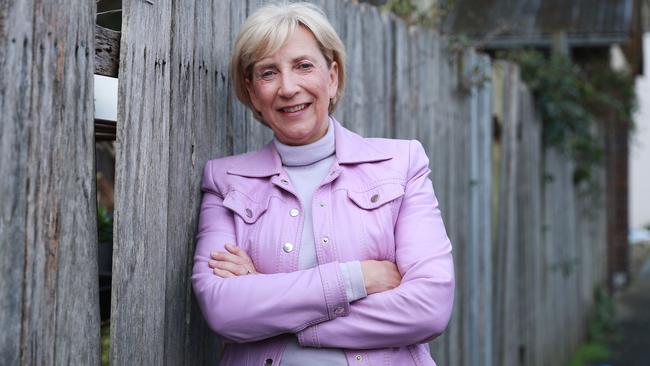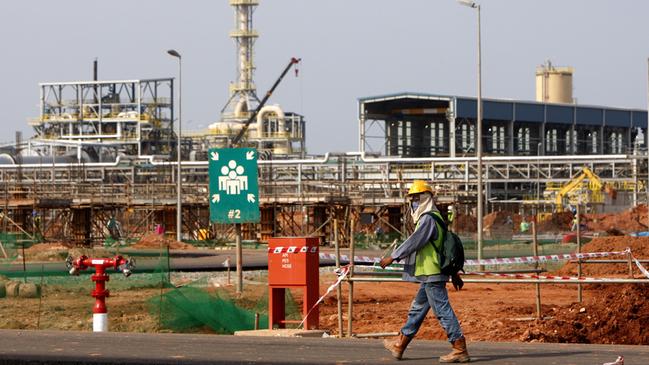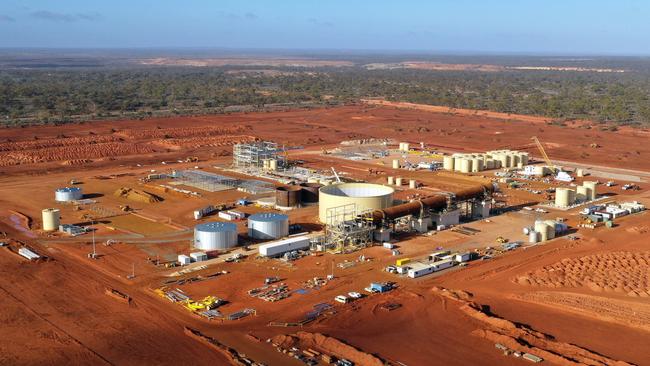Little-known Aussie company takes on China
China has been smashed in the tariff trade war with the US and now Australia is threatening its dominance in a very lucrative industry.
The brutal trade war between China and the United States has hit a number of industries, but 31 critical minerals, including rare earth elements, were exempted from the tariffs.
Yet China has another headache on its hands with one Aussie company muscling into the lucrative industry.
Lynas Rare Earths is an Australian rare-earths mining company with two major operations – a mining and concentration plant at Mount Weld in Western Australia and the Lynas Advanced Materials Plant in Kuantan, Malaysia.
The company has now become the first producer of heavy rare earths outside of China following the successful production of dysprosium at its Malaysia plant as demand for the mineral soars.
Dysprosium produces high-performance magnets for electric vehicles, wind turbines, and hard drives, and also plays a role in nuclear reactors and certain medical applications.

Export restrictions in China have tightly controlled the rare material, but the strategy is about to be blown up.
Lynas Rare Earths CEO and managing director Amanda Lacaze said the production of the rare mineral is “a significant step for supply chain resilience and provides customers with the option of sourcing product from an outside China supplier”.
“Lynas is now the world’s only commercial producer of separated heavy rare earth products outside China,” she said.
“Lynas is uniquely positioned to contribute to and benefit from efforts to diversify and rebuild supply chains, including opportunities for a sustained market restructure. We are engaged with customers in Japan, the United States and Europe regarding heavy rare earths supply.”
Pricing for the new heavy rare earths products is expected to be at a “premium” compared with prices in China due to high Western demand, according to the company, while the company is currently valued at $7.2 billion.

Lynas has been operating since 2012 and previously supplied materials for the likes of smartphones and defence related machinery.
Associate Professor of technology and innovation at the University of Technology, Sydney Marina Yue Zhang said the United States has a deep dependence on China for materials essential to its technological competitiveness, clean energy transition and national defence.
The United States knew it could not win the war on the critical minerals, particularly as China ramped up expanded export controls and a shift in pricing principles as it came under attack.
“The move reflects China’s longstanding effort to shift rare earth pricing from market supply and demand to pricing based on their strategic value,” Associate Professor Zhang wrote in The Conversation.
“The impact was immediate. Rare earth exports from China effectively ground to a halt, as exporters awaited approvals under a new, opaque licensing regime.”

China has near-total global control of rare earth refining at around 90 per cent and its monopoly on heavy rare earth processing is 98 per cent, she noted.
But now there is a new competitor in town as alarms have been sounded on the vulnerability Western nations faced when it came to these rare minerals.
“China is also working to redefine how rare earths are priced. One proposal would tie the value of key elements like dysprosium to the price of gold, elevating them from industrial inputs to geopolitical assets,” wrote Associate Professor Zhang.
“Another would settle rare earth transactions in yuan rather than US dollars, advancing Beijing’s broader ambition to internationalise its currency. For China, this strategy goes beyond economics. It is a deliberate national resource policy comparable to OPEC’s management of oil, designed to link pricing to the strategic significance of critical minerals.”

However, Australia could be best placed to disrupt China’s dominance, and the government is investing. Associate Professor Zhang explained that key processing technologies are not yet established, while potentially high environmental compliance costs are big barriers too.
“Under its Future Made in Australia initiative, the federal government is considering measures such as strategic stockpiling, production tax credits and expanded support for domestic processing,” she said.
“Iluka Resources has secured $A1.65 billion to build a rare earth refinery, due to be operational by 2026. Emerging projects like Browns Range and Lynas’s Malaysian refinery already serve as alternative nodes in the global rare earth supply chain network.”
However, she notes that Australia is also facing walking a “diplomatic tightrope”.
“Australia’s dual role – as a major upstream supplier to China and a strategic ally of the US – places it on a diplomatic tightrope,” she said.
“Aligning too closely with the US could invite Chinese retaliation. Appearing overly aligned with China may provoke scrutiny from Washington.”
More Coverage
Originally published as Little-known Aussie company takes on China




